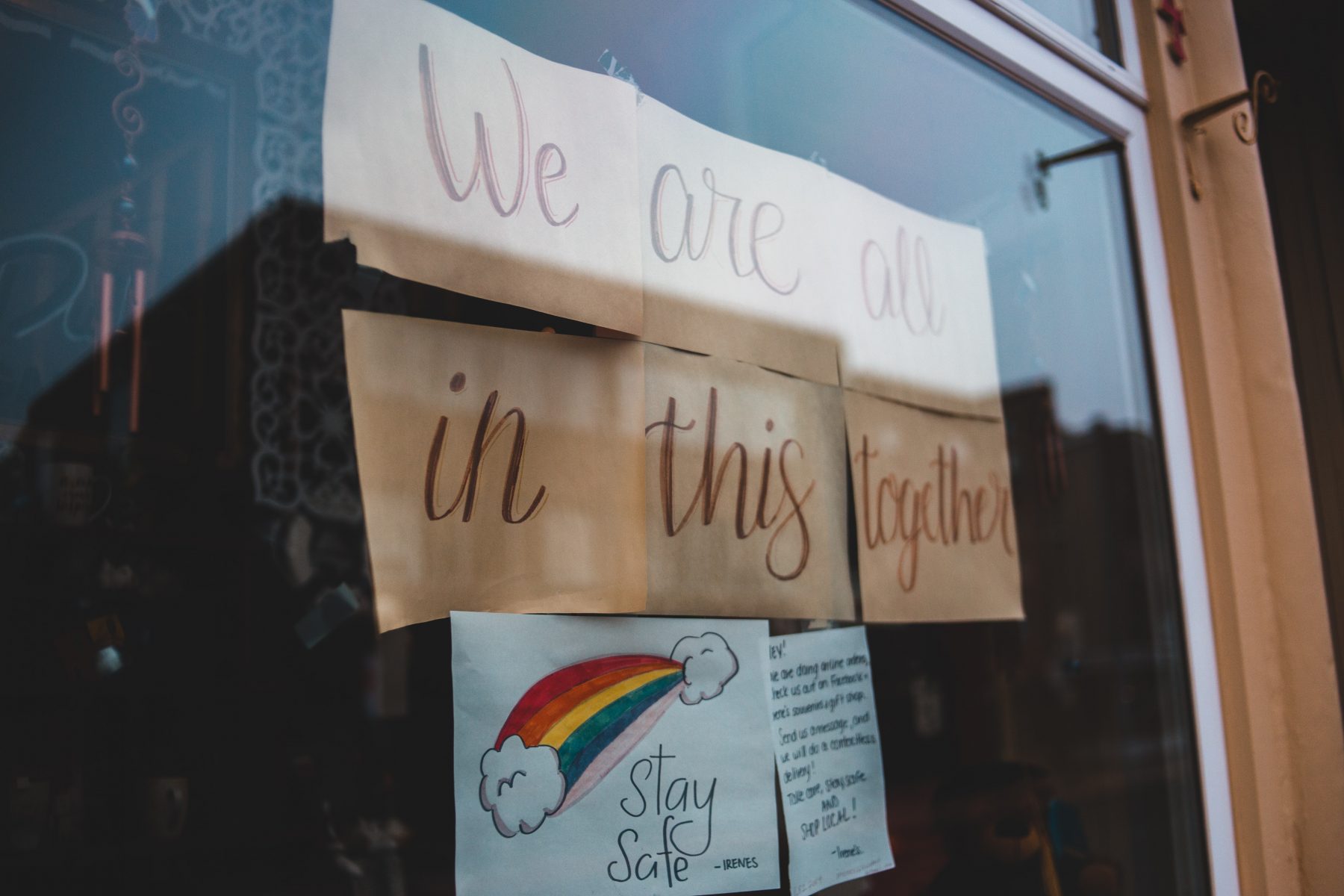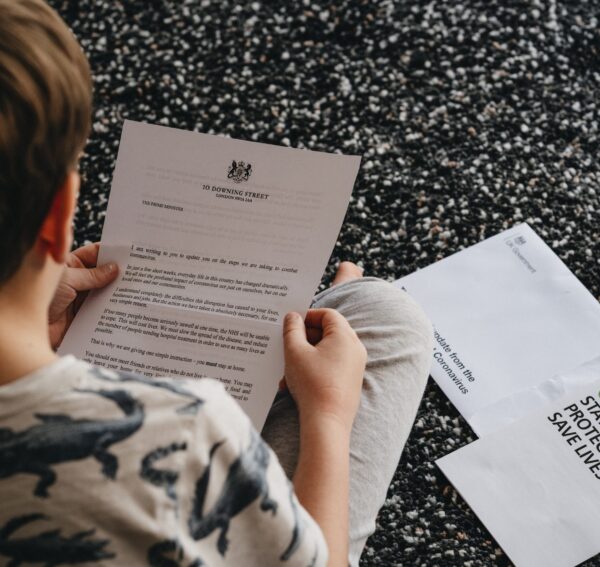Navigating a confirmed COVID-19 case in ECEC

On 6 July, an educator from Flemington Childcare Cooperative was diagnosed with COVID-19. With the service currently closed as a result, we reached out to Daniela Kavoukas, services manager from Community Child Care Association (CCC) who has been working with the service to learn more about the experience of navigating the complexities which come with temporarily closing a service as a result of the pandemic.
Firstly, Daniela wanted to let us know that from her conversations with other services throughout Victoria, the situation she faced is not unique, with many service providers navigating complex decisions, and juggling the health and safety needs of parents and children with the concerns of families, and the need to keep the wider community informed.
Closing the service
On learning of the diagnosis, the service announced that it would close as a result of a positive COVID-19 diagnosis. Once Daniela was able to confirm with the Department of Health and Human Services (DHHS) that those being educated and cared for by the service would need to be in isolation for 14 days, the service announced that it would close until 20 July.
When families first found out the service would temporarily close, she added, many were “not so shocked” given Flemington’s status as a “hotspot area”. That said, “there were a few that were quite panicked, particularly about having to take their child to be tested.”
For the closure of the service this week alone, lost revenue will be $31,500, plus a deep cleaning cost of $3,000.
Ambiguity adds to stress
The lack of clarity, and of additional information beyond the confirmation that a staff member had tested positive added to the worry, Daniela said.
“As we didn’t have advice from DHHS, or letters to give to families, it was really a matter of “assume you are doing the right thing unless told otherwise,” she continued.
The Department of Education and Training (DET) “were great over the coming days” but the initial 24 hours, after learning of the diagnosis “were so difficult without guidance”. While general advice is available about what responses to take following a diagnosis, there were a number of administrative efforts where services needed more support, Daniela shared.
Conducting a ‘deep clean’ of the service following the diagnosis is one example. “I ended up calling some other services that I knew had been through the process and got their cleaners to do quotes for me as I didn’t have specific advice from DHHS on what a deep clean consisted of.”
Wellbeing of staff
We asked Daniela about the wellbeing not only of the diagnosed staff member, but of the team as a whole, as the threat of COVID-19 became very close to home.
The staff member, she said, “ was extremely worried that she may have affected any other staff or children in the centre and was initially so stressed out”.
Having a supportive team rally around her has made an enormous impact on her wellbeing.
“Our team has been wonderful with her – we had a few Zoom meetings to touch base and check in with each other, stay grounded and connected,” Daniela explained.
Although the families are unaware of which staff member has contracted COVID-19, they have been making cards with the children, and sending them to Daniela to pass on.
“It’s been important for our families and other staff to send their love to her – it’s made the biggest difference in her feeling comfortable and a part of our Co-op family. She was quite unwell for the initial days but is feeling much better now,” Daniela said.
Practical support
The biggest barrier in seeking support, Daniela explained, has been that DHHS has been “inundated” with other cases, hampering their ability to provide advice and support.
“I notified them on Monday afternoon and I finally had the response I needed on Saturday night. This meant that some families had missed their day 11 testing. Whilst I appreciate how busy they are it added so much stress to our centre and families,” she added.
Daniela suggested the following simple things which could be prepared in advance, and may make the process easier for other services facing the same situation including:
- Knowing who to contact, and when to make a notification
- Being aware of exactly what a deep clean consists of, and having contacts for commercial cleaners with the expertise to undertake a deep clean
- Knowing the timeframe for testing for those who have been in close contact with the COVID compromised individual/s
- Completing a COVID contact tracing list.
To support services, CCC have prepared a flowchart of steps to take when a case of COVID-19 is present within the service.
“We have also had some Zoom meetings with our children just to check in and say hi so that there is connection over these two weeks we are closed,” Daniela said.
“The team all had the first week off with no expectation to do any work – they are all exhausted from a huge year and in some ways its forced them to stop (silver lining maybe)…this week we are focused on a few different pieces of work that we can do collaboratively over Zoom,” she added.
Victoria as a collective
We asked Daniela to share her perspective on the general feeling in the early childhood education and care (ECEC) community now that Stage 3 restrictions are in play for much of the State, with triple digits of new cases appearing for a number of consecutive days.
“Everyone seems so stressed,” she said.
“Financially, services can’t afford to be closed for two weeks for positive cases of COVID-19 without government support. In our case, we were ‘lucky’ that one of our closure weeks coincided with free childcare, however it’s still costing us nearly $14,000 to have a week of no gap fees, plus the cost of a deep clean.”
All it will take for many services to no longer be viable, she said, is a few cases of COVID-19 in each centre between now and Christmas, and the burden will be too much to bear.
“In Flemington with so many cases families are choosing to stay away, which means if I don’t waive fees, families will exit enrolments and then I am worse off again,” she continued. “It’s quite sad to be talking to services that have been operating for 50 years or so who are saying we will be closing our doors in September if things don’t change.”
For her service alone, to waive fees for six weeks is a $81,000 loss, something small community owned services simply aren’t able to absorb, she said.
Safeguarding plea
Based on the potential impact to services, CCC is calling for a sustainability payment to be implemented – a stop gap measure for services in lockdown areas, or for services which have to close as a result of a positive COVID-19 case, that the Government will pay the gap fees usually recouped from families.
Based on CCC estimates, a weekly sustainability payment, comprised of weekly CCS payments and attending families gap fees would sustain services through closure periods and “keep them out of hot water”.
At time of print, with speculation of even tighter restrictions in coming days, Daniela says “it’s really borderline at the moment”.
Popular

Quality
Provider
Policy
Practice
WA approved provider fined $45,000 over bush excursion incident
2025-07-01 07:00:01
by Fiona Alston

Workforce
Policy
Quality
Practice
Provider
Research
ECEC must change now, our children can’t wait for another inquiry
2025-07-02 07:47:14
by Fiona Alston

Quality
Practice
Provider
Workforce
Child left in storeroom at Sydney centre sparks concerns over supervision and trauma support
2025-06-30 09:09:58
by Fiona Alston













